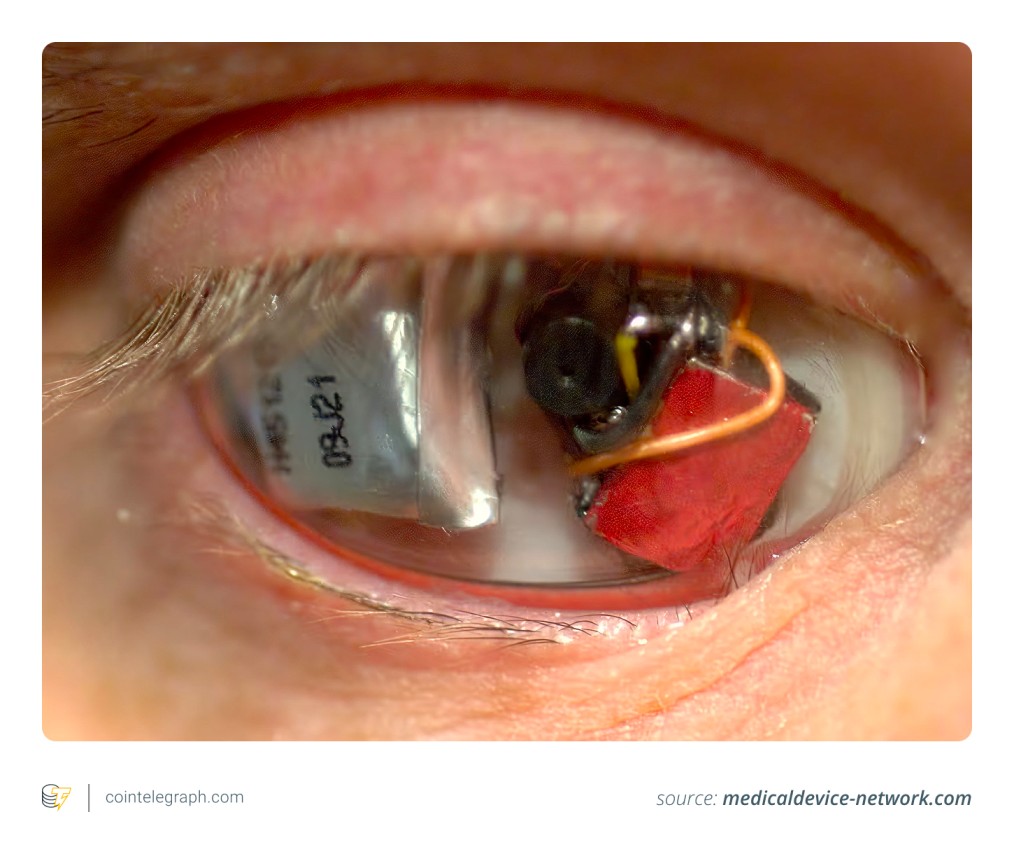Key takeaways
-
By 2025, cryptocurrency can be used for nearly all purchases, including high-value and unique items.
-
Services like cryonic preservation, DNA storage, and advanced biohacking treatments are now accessible through cryptocurrency payments globally.
-
An increasing number of institutions are accepting cryptocurrency for payments of everything from real estate to tuition fees.
-
Autonomous AI agents are capable of handling crypto payments, while tokenized racehorses and NFTs connect digital and physical ownership.
The era when cryptocurrencies were solely for trading and investing has passed. Today, they can be used to acquire a wide range of items, from luxury goods to unconventional purchases, such as private islands, racehorses, luxury bunkers, and biohacking implants. As adoption continues to grow, users are turning their digital holdings into rare and valuable possessions. This guide explores some of the most surprising and impressive items you can buy with crypto in 2025.
1. DNA-based time capsules
You can secure your DNA or digital legacy for future generations using cryptocurrency. Services exist that allow payments with Bitcoin (BTC), Ether (ETH), or other cryptocurrencies to safely store your genetic information or personal memories in biobanks or decentralized digital vaults.
Many of these platforms utilize blockchain technology to guarantee secure ownership records and timed-release features. This ensures that your data is retrievable only when intended, whether that’s decades or centuries later.
Some services even combine blockchain security with crypto payments, offering a means to connect with future generations through your digital assets.

2. Autonomous AI agents
As we move into the second half of 2025, autonomous AI agents are becoming significantly more proficient. These agents can now execute crypto payments independently, a concept known as agentic payments.
Aeon’s AI Payment system is one example where agents can learn user behavior, compare prices, make purchases, and process crypto transactions across various platforms, QR codes, and NFC-enabled retail environments.
These systems frequently operate across blockchains such as BNB Chain and Solana. In parallel, companies like Mastercard are developing secure tokenization layers to enable AI agents to function under strict user-defined permissions while ensuring transparency and regulatory compliance.
Together, these advancements indicate a noticeable shift towards a future where AI, blockchain, and smart contracts synergize to enhance automated digital commerce.
Did you know? Pizza chains in the US and Europe accept crypto via platforms like BitPay. You can pay for dinner with BTC, ETH, or stablecoins.
3. Cryonic preservation
Cryonic preservation involves storing the human body (or just the brain) at very low temperatures after legal death, with the objective of reviving individuals in the future when science advances to treat currently fatal conditions.
Companies like Alcor Life Extension Foundation are already offering these services and accept Bitcoin and other cryptocurrencies as payment.
The option to pay with crypto makes sense for an innovative field like cryonics, appealing to those who are more comfortable with technology than traditional systems. If you’re planning a future revival, you’re likely not someone who writes checks. Paying with crypto is simply a natural fit.

4. Luxury cars
Buying luxury cars with cryptocurrency has become feasible. Ferrari now accepts crypto payments for its vehicles in the US and the EU, while select Lamborghini dealers also accept digital currencies.
Post Oak Motor Cars in Houston allows crypto payments for luxury vehicles like Bentley and Bugatti through BitPay. In South Africa, Ferris Cars accepts cryptocurrencies for car purchases as well.
Other dealers accepting crypto include Exclusive Automotive Group, an authorized Aston Martin and Bentley dealer in Washington, D.C.; Infiniti of San Jose, California; and Puente Hills Mitsubishi in City of Industry, California.
Most dealers collaborate with services like BitPay or CoinPayments to convert crypto into fiat instantly, minimizing risks associated with delays and volatility. However, some dealerships might permit direct wallet-to-wallet transactions.
Did you know? Bentley University (Massachusetts, US) now accepts Bitcoin, Ether, and USDC (USDC) for tuition fees via a partnership with Coinbase.
5. Tokenized racehorses and NFTs of real animals
Cryptocurrencies are making their way into equestrian circles as well. Platforms like Hoofborn enable you to purchase fractional ownership of real racehorses using blockchain technology. Rather than simply betting on a horse, you could own a share of one.
Additionally, the trend of linking real animals to non-fungible tokens (NFTs) is on the rise. This concept, known as cryptozoology, connects real-world animals—such as exotic pets, endangered species, or livestock—to NFTs.
These tokens can help fund conservation initiatives, raise awareness, or signify caretaking rights. For instance, NFT holders may support wildlife sanctuaries or gain access to exclusive animal interactions.
6. Cosmetic surgery and biohacking implants
Several cosmetic clinics have begun accepting cryptocurrencies for procedures like liposuction, Botox, and hair transplants. Practices in Beverly Hills, Miami, and Atlanta have recently adopted this payment method.
Moreover, biohacking is gaining traction. Treatments such as peptide therapy, NAD+ (nicotinamide adenine dinucleotide) infusions, and stem cell interventions are becoming commonplace. Clinics in Dubai and other regions are at the forefront, and with Dubai’s crypto-friendly regulatory environment, it’s likely that more clinics will soon accept crypto payments.
Globally, biohacking clinics are on the rise, offering advanced, non-invasive treatments like NAD+ infusions and peptide therapy.

7. Real estate
By 2025, the purchase of real estate using cryptocurrency has become increasingly prevalent. In Los Angeles, Christie’s International Real Estate has set up a dedicated cryptocurrency division to facilitate property transactions using digital assets like BTC and ETH.
Christie’s has completed several luxury home sales in Southern California. Platforms such as Crypto Real Estate and RealOpen allow users to search for and buy properties, even private islands, directly with cryptocurrencies. These platforms showcase thousands of crypto-friendly properties worldwide.
When local regulations prevent direct crypto transfers for real estate purchases, platforms may partner with concierge services to discreetly convert cryptocurrency into traditional currency.
Meanwhile, services like Propy utilize blockchain and AI to manage escrow and property titles on-chain, simplifying the closing process for crypto-based real estate transactions.
Firms like Ledn and Salt Lending offer crypto-collateralized mortgages for buyers utilizing BTC as collateral.
Did you know? The United Nations International Children’s Emergency Fund’s (UNICEF) CryptoFund accepts donations in Bitcoin and Ether to support global initiatives transparently.
8. Luxury accessories
Online retailers such as CW Sellors in the UK accept a variety of cryptocurrencies, including BTC, ETH, and USDC, for luxury watches and jewelry.
Similarly, Ace Jewelers allows unlimited cryptocurrency payments for high-end watches and accessories in its European stores. Another notable example is Crypto Emporium, which offers an extensive collection of prestigious brands like Rolex, Patek Philippe, and Audemars Piguet, all purchasable with Bitcoin and other digital currencies.
Even mainstream payment processors like BitPay enable cryptocurrency transactions at numerous jewelers and watch dealers worldwide.
What is next
The applications discussed are merely scratching the surface. Countries such as El Salvador and some US states, like Utah, already accept Bitcoin for tax payments. Additionally, several universities in Switzerland and the US are testing crypto for tuition payments.
In conclusion, while crypto may not outright replace traditional money, it is clearly becoming an integral part of how people spend, invest, and engage with services on a global scale.
This article does not provide investment advice or recommendations. Every investment and trading decision involves risk, and readers are encouraged to conduct their own research before making any decisions.





